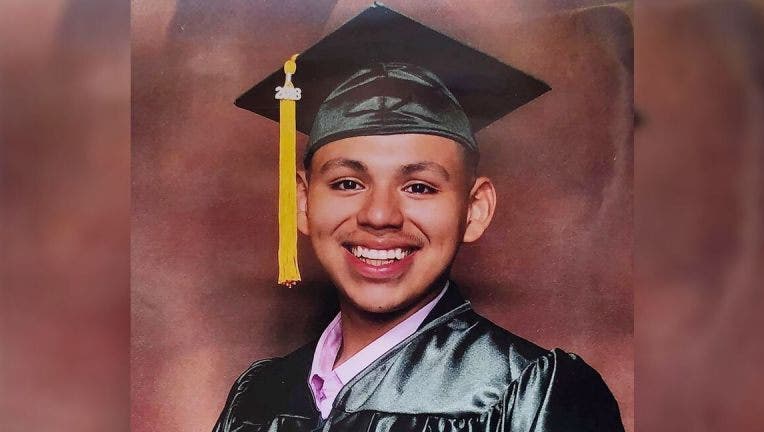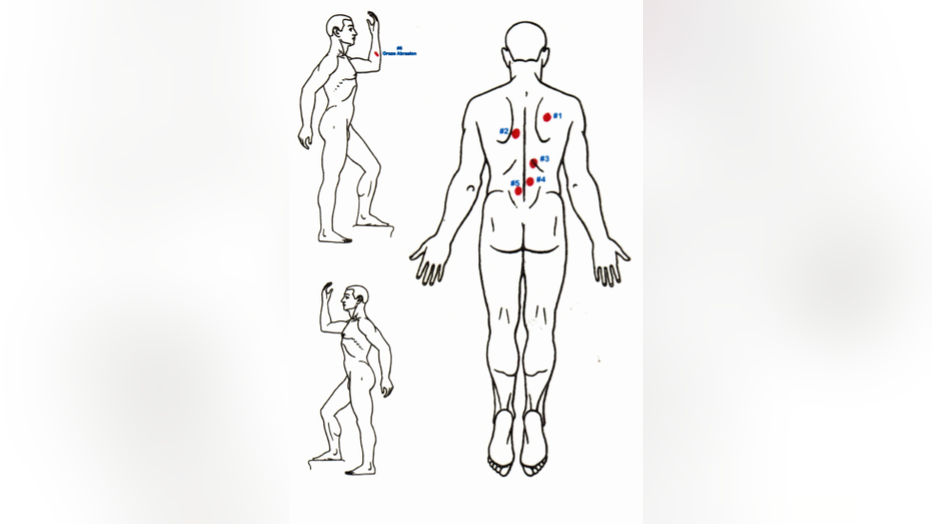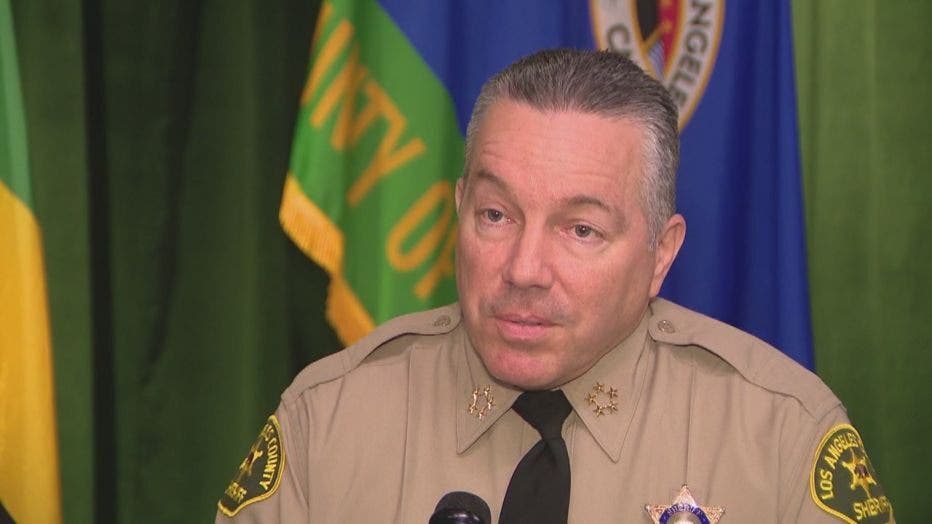Inquest into Andres Guardado's death begins; First in LA County in over 30 years

Andres Guardado
LOS ANGELES - The Los Angeles County coroner's office began a rare inquest on Monday into the shooting death of an 18-year-old man by a sheriff's deputy near Gardena, but the proceedings got off to a rocky start, with multiple sheriff's department officials declining to answer questions, citing advice from attorneys.
The deputy who fired the fatal shots, Miguel Vega, did not even attend the proceeding, with an attorney saying he was out of the country.
Get your top stories delivered daily! Sign up for FOX 11’s Fast 5 newsletter. And, get breaking news alerts in the FOX 11 News app. Download for iOS or Android.
An attorney for Vega's partner, Deputy Christopher Hernandez, also indicated he would not testify, noting that Hernandez did not fire at Andres Guardado, who was fatally shot June 18 near Gardena.
Two sheriff's homicide detectives who were assigned to the shooting investigation -- Mike Davis and Joseph Valencia -- repeatedly declined to answer questions, saying that under advice from counsel they were invoking their rights under the Constitution.
Retired California Court of Appeals Justice Candace D. Cooper, who is overseeing the proceeding, excused them, butsaid she will determine if their blanket refusals to answer questions was appropriate and they may be called back later.
The inquest is the first in Los Angeles County in more than 30 years.
The coroner's office subpoenaed documents to present at the inquest and witnesses to testify.
RELATED:
• FBI says it will review killing of Andres Guardado, shot in back 5 times by sheriff's deputy
• New details released in Andres Guardado investigation, fatally shot by LA County sheriff's deputy
• Andres Guardado, 18, was shot in the back five times by sheriff's deputy, family autopsy finds
Cooper, as the hearing officer, will make findings related to thecause and manner of death, and she will then forward her decision and recommendation to the coroner's office.
The death of Guardado, who was shot multiple times in the back, allegedly while reaching for a gun on the ground, prompted multiple protests and calls for disciplinary action and prosecution of the deputies involved.
Following a day of hearing testimony, Cooper did not issue any immediate findings, but said she will review additional witnesses and documents to decide if there will be an additional session.
During the hearing, Dr. Kevin Young, who signed the autopsy report, reviewed his previous findings that Guardado was shot five times in the back.

Andres Guardado verified diagram from independent autopsy performed on June 26, 2020. (Provided by PANISH SHEA & BOYLE LLP)
At the conclusion of his testimony, Cooper announced that she had decided against releasing the autopsy photos into the public record, only diagrams showing the locations of the wounds.
Dr. Bennet Omalu, a forensic pathologist who conducted an independent autopsy, said his findings on the cause of death coincided with those of the coroner's office: that the 18-year-old had suffered five gunshot wounds to the back, any one of which "could have killed him without the others."
Lianna Darabedyan, a coroner's investigator assigned to the case,testified that a gun was found about 3-5 feet to the right side of Guardado's head as his body lay face-down on the ground.
County firefighter/paramedic Andrew Clemens, who responded to the shooting scene, said Guardado was pronounced dead with in about three minutes after paramedics arrived.
Guillermo Torres, a journalist from the online publication LA Taco, testified and provided video that he took of the shooting scene and an interview with Andrew Haney, the manager of a nearby auto body shop where Guardado was working as an informal security guard.
Cooper received a package of investigative documents -- under seal --that were subpoenaed from the sheriff's department.
She is expected to review those documents, in part to determine if testimony from others will be required, and she will then return the documents under seal to the sheriff's department.
In announcing the inquest on Nov. 10, Dr. Jonathan Lucas, the county'schief medical examiner-coroner, said his office "is committed to transparency and providing the residents of Los Angeles County an independent assessment of its findings in this case.
An inquest ensures that our residents will have an independent review of all the evidence and findings of our office and of the cause and manner of death of Mr. Guardado."
The Guardado family's attorney, Adam Shea, welcomed the coroner's office decision to hold the inquest, saying the sheriff's department had" failed to be transparent in its investigation into the circumstances, manner and cause of Andres' death."
The Board of Supervisors voted unanimously on Sept. 1 to ask the coroner to conduct the inquest into the death. The board passed a motion by Supervisor Mark Ridley-Thomas alleging the department violated state law by failing to allow oversight of law enforcement investigations. It directed the county's lead lawyer to report back on the feasibility of a lawsuit within 10 days.
Ridley-Thomas also recommended the inquest and using the coroner's subpoena power to create a record of investigative steps taken by the sheriff's department related to the cause and circumstances of death.
"For far too long we have accepted the status quo -- we haven't sufficiently challenged law enforcement's incessant demands that investigations remain shrouded in secrecy," Ridley-Thomas said.
"This board must not sit byand allow the county's law enforcement department to entrench itself in traditional patterns of behavior that profoundly harm not only vulnerable communities but the entire justice system."
Ridley-Thomas said the move would also bolster the investigation into the subsequent shooting of Dijon Kizzee, who was killed by sheriff's deputies who stopped the 29-year-old Black man for "code violations" while riding his bike. Deputies say Kizzee was armed with a handgun and punched a deputy in the face, while relatives and activists said he dropped his gun and was shot more than 20 times in the back.
Sheriff's officials said they recovered a handgun near Guardado's body, and say he was reaching for the gun when he was shot.
Guardado's family said he was armed because he was working as a security guard for the auto body shop.
Deputies said he was not wearing a guard's uniform when they responded toa report of a non-fatal shooting in the area and wasn't licensed as a guard orold enough to hold that job under state law.
Guardado's family has filed a suit against the county alleging wrongful death and civil rights violations.
Inspector General Max Huntsman told the Board of Supervisors on Sept.1 that his office would have been better able to gauge allegations against deputies in the Guardado case if his staff still had access to LASD computers,but the department locked them out some time ago.
"We have made requests for information that have been denied," Huntsman said.
The inspector general mentioned an accusation that the deputy who witnessed the shooting was involved in a deputy gang.
Huntsman also revealed that the deputy who shot Guardado "didn't give a statement for weeks," saying that delay could raise concerns in the community about some kind of deal between the department and the deputy's lawyer.

Sheriff Alex Villanueva has consistently pushed back against allegations that he does not favor transparency, pointing to his direct communication with the public through postings of department policy and other information on his website and community town hall meetings.
In addition to legal wrangling with the board, the department has sued Huntsman, accusing his office of conspiracy, unauthorized computer access and theft of confidentialities.
The sheriff blasted Ridley-Thomas' motion calling for an inquest when it was introduced, calling it "poorly written, riddled with inaccuracies and contradictory to the law as well as best practices employed in death investigations."
The sheriff said the motion portrayed the deputy involved in a negative light that could be deemed slanderous and open the county up to civilliability. He challenged the board's authority to request an inquest, and said releasing information earlier could compromise an investigation.
"Transparency cannot come at the expense of integrity in any criminal investigation," the sheriff said.
"We do hold our employees accountable, so any suggestion or inference that we cannot hold ourselves accountable to the rule of law is factually false."

